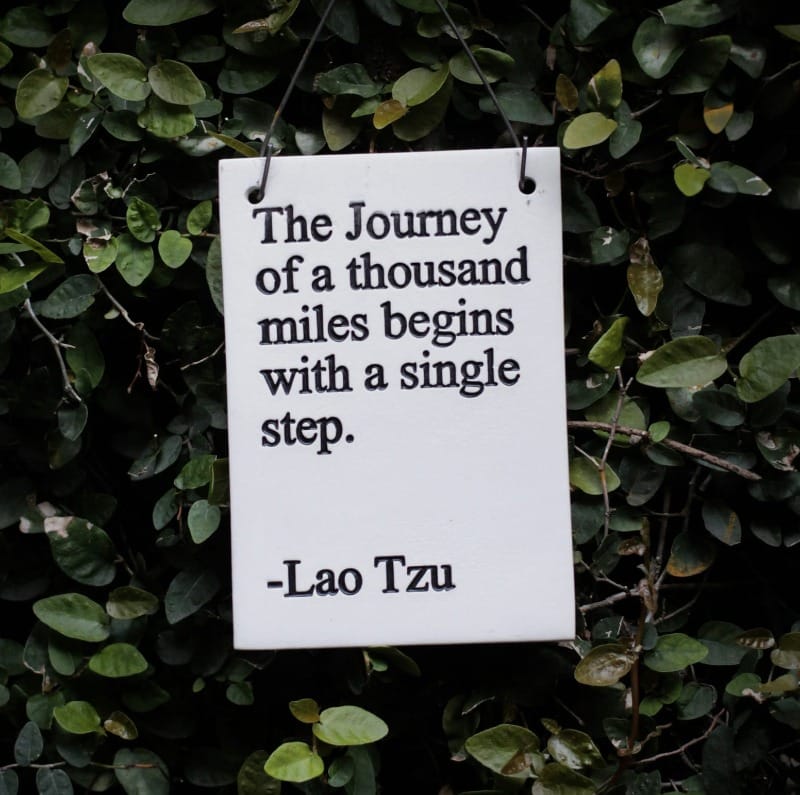Self-sabotage & Getting Back on Track
Are you worthy of praise? Do you unwittingly sabotage your gains?

Life Lessons
Self-sabotage & Getting Back on Track
The bias for valuing criticism over praise dilutes efforts and side-tracks us from our goals. Why are we happy to feel unworthy but uncomfortable when praised?
This topic applies equally to weight loss, personal development, and building any skillset. I’m using the example of authoring books to illustrate how we unknowingly sabotage our gains and how to get back on track.
Fact: I published my first children’s book.
Feedback: I sent copies with my kids to their schools and members of my family. The response was unanimous. It is a good book. Perhaps, a Great book. The kids laughed fascinated by both story and illustration. The adults appreciated the topic.
What did I do with the praise I received?
Praise and criticism are gifts. How are they received?
Limiting beliefs: Praise brings the evil eye — bad luck, and is for people looking for an ego boost. Praise is for the blameless, for saintly people, OR should be given as part of a criticism sandwich. Praise is not to be trusted.
The illusion: Praise is like wearing a designer outfit; it looks and feels fantastic but is outside my budget and norm. Uncomfortable, I thank the giver and hang the praise on the rack. I want praise but I am lost when I receive it. If I take the praise home — it will hang in my closet unworn. I say, ‘ It was a team effort’ or ‘I got lucky.’ I make excuses for why I am not worthy.
Fact: Publishing a book was 100% my effort and drive, and I didn’t work with a team. I shared the book with my kid’s schools knowing I was hitting up my direct audience (High-Effort-High-Impact).
Self-sabotage after receiving praise
Reaction: Feeling embarrassed and unworthy, my drive to do more kicked in.
I spent the day signing in to vocal media and noting the absence of any followers on wattpad.
My interest in these two social story publishing platforms resulted from wanting to explore publishing & feedback-gathering options. I suppose I imagined it would extend my reach (High-Effort-Low-Impact). This is a fallacy unless I’m willing to make even more effort into writing a real-time series based on prompts, submitting to contests, and engaging with commentators.
Result: Exploring these two platforms lowered my confidence and distracted me from celebrating. My confidence dropped, the list of things on my to-do expanded, and overwhelm set in. I did NOT spend the day contributing to my current work — the epic where success would be the equivalent of a red carpet gown (High-Effort-High-Impact).
Exploring WHY it is so easy to ignore praise
Leaving childhood psychoanalysis aside, I’d like to focus on the more recent impacts on my mind that affect my ability to receive and build on praise in real time.
Hustle & Grind Culture
The life of a product manager falls under the dictates of agile, scrum, roadmaps, and the whims of your manager/CEO/CTO. Pressure is high for my teams to succeed at a fast pace.
Celebrations are rare. Even company retreats are an exploration of what our successive wins will be. The end of a sprint coincides with a retrospective that celebrates what went right but also talks about what went wrong and how to improve. While this is great, it usually takes place after we’ve started the next sprint. There’s never an end in sight!
We are programmed to run like a machine — think Kanban. Always a never-ending list of tasks. We will never make it to the finish. (The key? Focus on the task at hand and nothing else.)
Later, as I entered management and leadership — the hustle and grind persisted. Instead of working as an individual contributor, I had to figure out how to motivate multiple teams, provide ample feedback, and cover a wide array of needs from those of the CEO to those of the PM.
As an author, my mind was already on my next win.
Obsessions with Data Tracking
If a tree falls in the forest, does it make a sound? If I take off my Fitbit, will my sleep, walk, or pulse still count? Must I build my audience AND at the same time excel at my craft? Does the number of followers matter more than audience feedback? WHO is my audience and where am I publishing? Is the audience (external) more important than the content creation (internal)?
How are our devices teaching us to celebrate our wins? A handy notification and a momentary feeling of happiness are replaced almost immediately as another notification reminds you that you didn’t work out today, drink water, or log calories.
We’re allowing ourselves to be programmed to value virtual interactions over human interactions.
My health insurance app will accept meditation via integration with the Headspace app. The hour I spend meditating each night in silence or guided by a teacher in person does not count toward reducing my premiums.
Consequentially, I have trouble equating human feedback to feedback from data platforms.
It's important to know the audience you are reaching out to and what your plan is in the long run. If it's to publish a paperbound book, then the online platforms, while valuable for their intended purpose, may not be the highest value for your efforts.
I need to change the way I track and expose feedback from writer groups and personal interactions.
There’s too much that needs doing.
Perfectionism: The martyr doing for others and not for yourself OR the more selfish action carried out for easy wins (continued applause).
At home, its the guilt of a task not done or how you will be perceived by others. At work, it is never saying no.
We get caught to caring too much about what others may think of us. That we are not a team player or that we are not a good friend.
Dilution of effort is the result.

Focusing on the goal instead of the journey
My mistake: Focus on the goal instead of the journey.
I had achieved a goal but I had forgotten the journey. The experience with my books published today are to gain valuable experience and feedback for tomorrow. They are my trial runs. They are to get me acquainted with success.
My work today is to set up the stage for success tomorrow.
How to reground
- Focus on the journey. Celebrate my win. A milestone has been passed. Where is the next marker I must reach? What trajectory will get me closer to my ultimate goal?
- Set the pace. Writing (and finishing) my epic. How many chapters need to be written? Where do I need to spend more time on revision? Time is required to write, research, and develop.
- Focused effort. What are the proper steps to getting there? Focus on the writer groups that give real-time audience/user feedback on my chapters. Focus on getting noticed by an agent or editor who will help me reach the next level.
- Don’t contribute to the noise. Turn off social media. Slow and steady means there won’t be applause along the way.
- Cross out all distractions that don’t meet the above criteria. What do I need to stay motivated? Surround myself with people who support my journey. Talk the talk, walk the walk.
Reality Check and my ongoing Journey.
I am enough. Why am I failing to celebrate? Take the suit home! Put the confidence from success into writing the great epic. This is not imposter syndrome. This is a justification that you’re on the right path.
Recognizing the Win: I received human feedback today. My book was read to 90+ children and will be available from the local school libraries. The teachers involved were real people with the potential to leave genuine reviews on Amazon.
Achievement unlocked: I achieved my dream of publishing a children’s book.
Ongoing goals:
- Complete a creative writing course,
- Update a draft outline of the novel,
- Complete more chapters,
- Attend writer groups in person and virtually for feedback,
- Research context, and
- Talk to people: gauge their interest and collect their feedback. Discover the audience to whom I will depend on future success.
- Have a mentor and accountability buddy to help guide me on my journey.
How do we get back on track?
- Recognize the behavior in yourself. I am not good at accepting praise and using it to build my confidence.
2. Accept and acknowledge where this behavior leads. I feel like I have even more to prove. I stretch myself thin, and undertake more ‘work’ to the point of overwhelm. I am guilty of ignoring my journey while focused on the wrong goals.
3. Do something about it. Self reflection — self development. Now that I see it for what it is, I can change my response pattern to praise. I can return to focus sooner.
4. I am human. I am flawed. That is ok. Yes, a lot of this is upbringing, culture, and what came before but that doesn’t stop me from identifying self sabotage and making changes today.
More like this:








